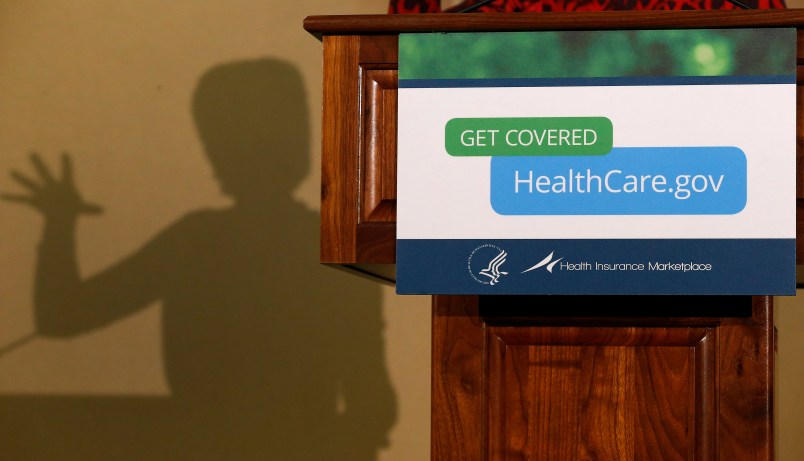PORTLAND, Ore. (AP) — After months of deliberation over what to do with Oregon’s botched online health exchange, an advisory panel on Thursday recommended that the state drop the site for private policies and have Oregonians instead shop for them on the federal online marketplace.
A top Cover Oregon official, Alex Pettit, said fixing the existing system would be too costly at $78 million, would take too long to implement, and would be too risky. He said switching to the federal system would cost $4 million to $6 million.
Oregon would continue using its current technology for Medicaid enrollments, but not for people who are buyingprivate policies.
The full Cover Oregon board will take up the recommendation Friday, nearly seven months after the state’s website was supposed to go live.
Oregon’s exchange is seen as the worst of the more than a dozen states that developed their own online health insurance marketplaces. The state is the only one where the general public still can’t use an online enrollmentsystem to sign up for coverage in one sitting — despite an early start building the site and millions of dollars from the federal government.
The website was supposed to go live Oct. 1, but Cover Oregon and the technology vendor that built it, Oracle Corp., have been unable to work out all the glitches. Instead, Oregonians must use a costly, time-consuming, hybrid paper-online process to sign up for insurance.
The state has spent nearly $7 million on the paper processing efforts, in addition to $134 million in federalfunding paid to Oracle.
Oregon was the only state to receive a monthlong enrollment extension because of the technology problems.
The federal Government Accountability Office has announced an investigation of Oregon’s exchange, including looking at whether the federal government can reclaim grant money given to Cover Oregon if taxpayer funds were mismanaged.
Separately, former Health and Human Services Secretary Kathleen Sebelius asked for an inspector general’s investigation into problems with the rollout of the health care law.
An independent investigation ordered by Gov. John Kitzhaber found state managers repeatedly failed to heed reports about technical problems that prevented the exchange from launching. It also found that Oracle did a shoddy job in building the exchange. Four Oregon officials connected to the development of the Cover Oregonportal have resigned.
Kitzhaber has insisted that communications about the portal’s troubles never reached him as the planned Oct. 1 launch neared.
Oregon officials have been weighing their options about what to do with the beleaguered exchange.
A preliminary report by Cover Oregon consultant Deloitte Development LLC made public in April found the least expensive fix for Oregon’s health exchange would be linking it to the federally run marketplace.
Earlier this month, Maryland — another state with a glitch-filled exchange site — chose to revamp its exchangeby using technology that has proved successful in Connecticut. Maryland said it chose not to switch to thefederal exchange, despite much lower costs, because Connecticut’s exchange has worked better than thefederal one and because the move allows the state to use some of its existing technology.
But Oregon has rejected that option, with officials saying that transferring technology from another state would be too expensive and take too long.
So far, about 240,000 Oregonians have enrolled in coverage through Cover Oregon. More than 69,000 of those enrolled in private health plans, while 171,000 enrolled in the Oregon Health Plan, the state’s version of Medicaid.
An independent investigation ordered by Gov. John Kitzhaber found state managers repeatedly failed to heed reports about technical problems that prevented the exchange from launching. It also found that Cover Oregon’smain technology contractor, Oracle Corp., did a shoddy job in building the exchange. Four Oregon officials connected to the portal’s development have resigned.
Cover Oregon has paid $134 million in federal funding to Oracle and has spent another nearly $7 million on the paper processing efforts.
Copyright 2014 The Associated Press. All rights reserved. This material may not be published, broadcast, rewritten or redistributed.






